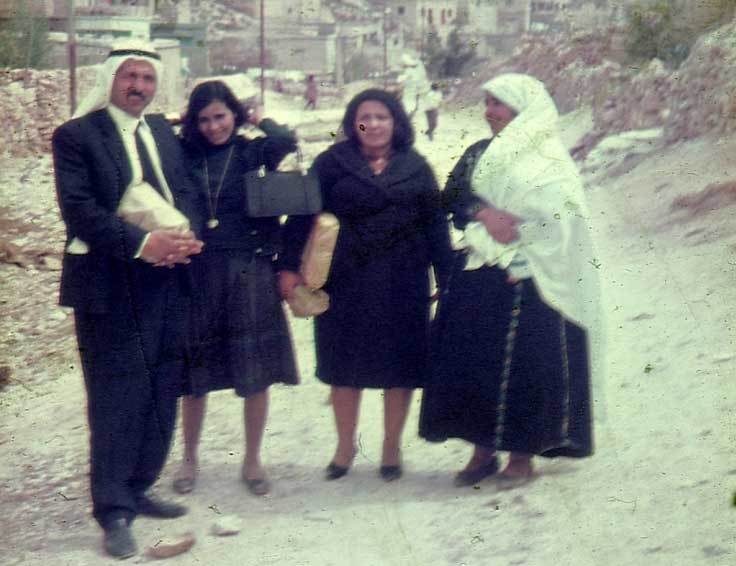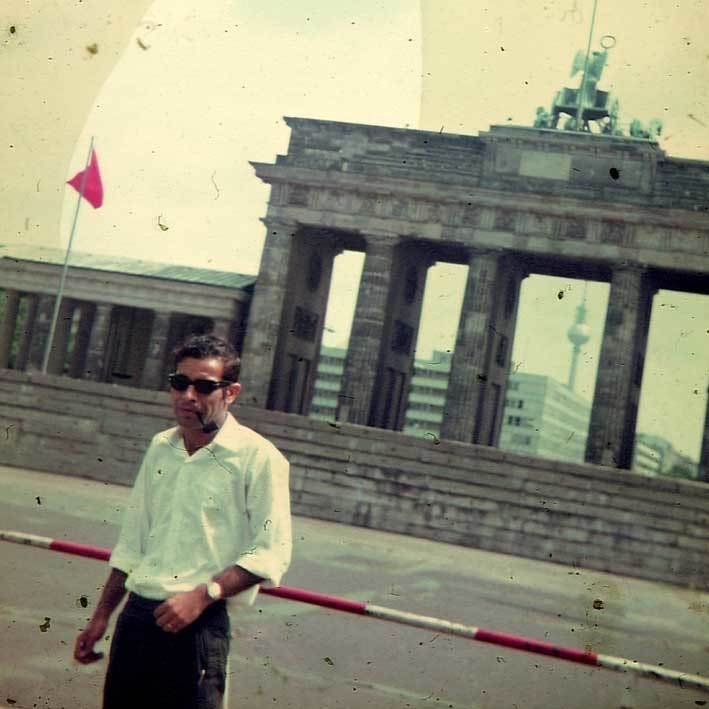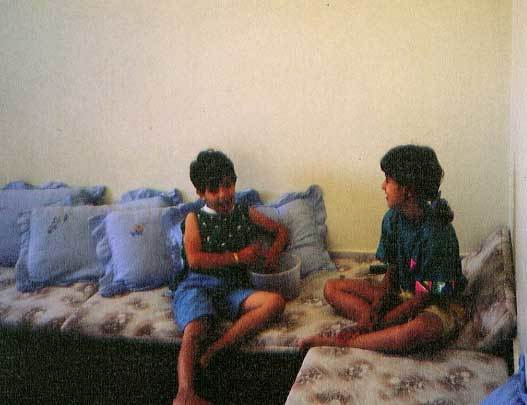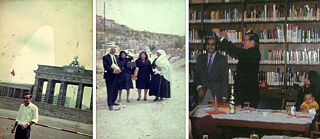If young people without immigrant parents have fallen into disrepute for disengaging and emancipating themselves from and rebelling against old traditions and conventions, then even more so those with a hybrid identity. Those, whose parents originate from more distant regions of the world, but who were born and grew up in Europe. People like me.
My parents were born in Palestine. My father came to Germany in the late sixties at the age of nineteen to study. My mother followed later on. My parents come from the same village. I belong to the second generation and have already provided for the third generation of German-Arabic presence in the family, as I have now an almost one-year-old son myself.I remember well how I once sat in a discussion round in Bremen. We were a group of young Germans with Arabic background, and in our middle sat an older gentleman from Egypt. I was still very young then, but I remember very well how a teenage girl explained to the man how it was not reasonable anymore to look for partners in the home countries of our parents. I still remember the puzzled look on the man’s face, but also that his disapproval hardly impressed us.
 From the left: Great-uncle Awad, aunts Sofia and Fawzia, and grandmother Tamam in Nablus, Palestine, 1968 | ©private
From the left: Great-uncle Awad, aunts Sofia and Fawzia, and grandmother Tamam in Nablus, Palestine, 1968 | ©private
My parents come from a small Palestinian village that stopped existing more than 60 years ago. And although they themselves did not grow up there, but in a large Palestinian city, my grandparents passed onto them their values and traditions. This included, for example, the importance of extended family. Several generations live under one roof or next door to each other. Children are taught respect towards their elders and loyalty. The next generation is a guarantor for one’s existence in old age. After all, there is no state welfare system. If you let your children go, then only to have them close to you once more later on.
The world that I grew up in consists of nuclear families. I grew up with neither grandparents nor uncle or aunt. Nor do I remember knowing anyone whose extended family had any influence on their life.
The world that I grew up in seeks to raise their offspring as independent. They learn early how to make decisions on their own. They leave their parental home early, enter relationships, have shared living arrangements, and have their first job to make their own contributions to their livelihood. In the world that I grew up in, these are all experiences that are meant to be lived in order to develop yourself. Self-determination as the highest good.
In cultural psychology, societal structures that assign great importance to family and community are called interdependent. Those structures that are focused more on the individual are called independent. Opposing concepts of life, and thus also of education, are therefore what my family has been faced with over generations.
 Father Diab Abed in front of the Brandenburg Gate in Berlin in 1967 | ©private
Father Diab Abed in front of the Brandenburg Gate in Berlin in 1967 | ©private
With all that said, the question is whether we experience this generational conflict really just because our families have a migrant background. Can we blame it all on culture and origin, or have the Palestine, Egypt or Turkey and all other origin countries already changed from what they were in the past?
When my father went to visit his mother during the summer holidays and arrived at her house in a taxi, he used to be greeted by dozens of people waiting there for him. Everyone knew and was neighbourly with each other. If someone came and could not find the house of a friend, all they had to do was ask the neighbours where a certain family lived. Back then, when an important holiday was approaching, the people of the neighbourhood met to prepare and make pastries together. They shared their food and looked after each other.
 Cousin Nour (left) with the author at the grandparents’ house in Gaza City, Palestine, 1989 | ©private
Cousin Nour (left) with the author at the grandparents’ house in Gaza City, Palestine, 1989 | ©private
But that is no more. Even in their home village, the life and people that my parents left behind have changed. Many families do not live next door to each other or under one roof anymore for personal or financial reasons. Life has become more anonymous; the village you come from is no longer decisive for your relationships. Sharing, neighbourliness, common rituals. A lot has changed.
However, conflicts between generations existed decades ago as much as they exist today. My grandfather would not speak to my uncle for weeks, when the latter decided to let his hair grow long, ABBA-style. And my father decided to go against the expectations of my parents and moved abroad for his studies. My grandmother could not accept this until the end of her days. In her view, he should have fed the chickens instead of pursuing a life so far away from her.
My now 82-year-old maternal grandmother needed some time to get used to the many selfies that her grandchildren are taking. And the long-haired uncle now has a very headstrong son himself, who, mindless of his parents’ criticism, wears his hair and beard in proper hipster-style.
I am certain that I will not understand everything that my son does in fifteen years. I will probably just shake my head in disbelief at many things, irrespective of where and how exactly he will grow up. The selfie hype, for instance, is already something that has gone passed someone my age[DJ1] . In that regard, I can understand my grandmother very well. In ten to twenty years, my child will be occupied with new types of media and trends that will be alien to me.
In my opinion, the conflict, or rather dialogue, of generations is something that occurs naturally in the course of time. After all, it serves the development of the individual self and society.
February 2022
